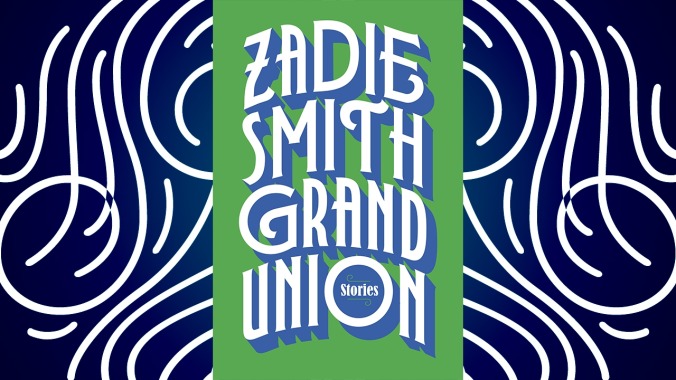With Grand Union, Zadie Smith proves she’s a master of short stories, too

Two men arrive in a village by foot. Though sometimes they arrive in a car, or a tank, or by air. They arrive at sunset, usually armed with gun or blade but occasionally with nothing more than the brute strength of their hands. Two men—it’s always two men—one tall and stupid, the other short and weasel-faced. They arrive with friendly greetings before demanding food, before demanding gifts, before demanding fear. Before demanding blood. “Two men arrive in a village,” Zadie Smith writes in the allegoric short story of the same name, an instant classic when it first appeared in The New Yorker three years ago. Though the invaders do their worst, they are defied by the village women, who stand proud and in formation, arms linked to protect their village daughters. “Still, there was something especially moving about the pointless courage of our women,” Smith writes, for the two will always return with more men.
Nothing so obvious as a single subject or theme links the 19 stories in Smith’s first collection of short fiction, Grand Union. Nothing beyond a virtuosity for the form, a powerful imagination, and, as in her five novels and two essay collections, a striking empathy for her characters.
But the best stories contained here, the stories that will whiplash readers into cycles of heartbreak, hope, and more heartbreak are those, like “Two Men,” that illustrate the intrusions, whether grand or diminutive, that disrupt the days, the family circles, the very unions we all hold dear.
In “The Lazy River,” a rabble of British Brexiteers on Spanish holiday float circles around their resort’s titular “watery Ouroboros.” Unlike Heraclitus’ river, the narrator quips, the Lazy River “is always the same no matter where you happen to step in.” The tourists float on, morning till night, skipping the local Moorish ruins for karaoke, gorging on sausage and chips over paella and swordfish at the buffet. But the Brits are not so ignorant to ignore the acres of polytunnels that grow fruit and veg to stock their shelves back home, the African immigrants who braid their hair, the men who, each night scrub “whatever scum we have left of ourselves off the sides” of the pool.
In “Downtown,” a pair of Jamaican aunts visit their niece in New York. Their four-day vacation is nearly spoiled by the intrusion of the 24-hour news cycle flashing courtroom scenes of a man named Brett making “that little bitch-baby face… the face a baby makes when you try and take his rattle away.”
On a sidewalk in London’s Notting Hill, a young man “caught in the slipstream of life,” a budding Antiguan law student named Kelso Cochrane, is murdered by a trio of fascist thugs steps from his front door in the heart-rending “Kelso Deconstructed,” Smith’s final-day-in-the-life recreation of this real-life race martyr who died in 1959.
In “Escape From New York,” three friends flee Manhattan in a rental car. They steer themselves west, avoiding the apocalypse, with plans to drive nonstop until they reach Los Angeles. Michael takes the wheel, Elizabeth bickers with backseat Marlon, who can only think about food. (Their friend Liza turned down a ride.) Before crossing the Appalachians, they’ve stopped at three KFCs, two Burger Kings, and a single McDonald’s. An IHOP waitress dribbles coffee on Michael’s gloved hand. She doesn’t recognize the King of Pop, that Marlon is Brando, or that Elizabeth’s ring holds “a diamond as big as the Ritz,” a gift from ex-husband Richard Burton. But by now the reader has recognized Smith’s conceit, the fashioning of a buddy road-trip comedy inspired by the urban legend that three aging mega-celebrities, all or whom would be dead within the decade, escaped New York together.
In the collection’s final story, the dreamlike “Grand Union,” a distressed mother of a young girl transports herself from America back home to London’s Ladbroke Grove in order to seek comfort alongside her own mother’s ghost. “For being dead,” the daughter thinks, “she looked pretty fantastic.” But her mom reciprocates with nothing but gripes: about her daughter’s Americanisms, the chronic misunderstandings between women in their family. The narrator realized that this is her mother’s way of showing affection. Love recognizes love. Self recognizes self. Individuals recognize the promise of grand unions. “[Y]ou can only really know,” Smith writes, “the blood you’re swimming in.”